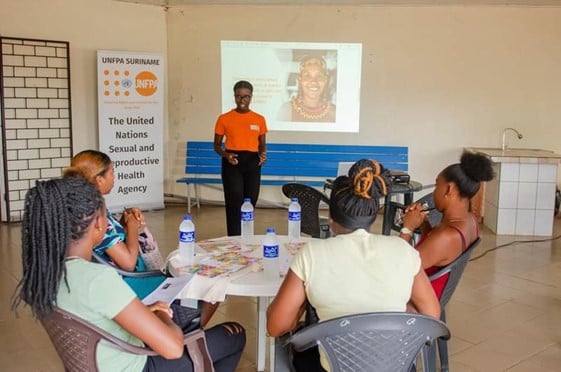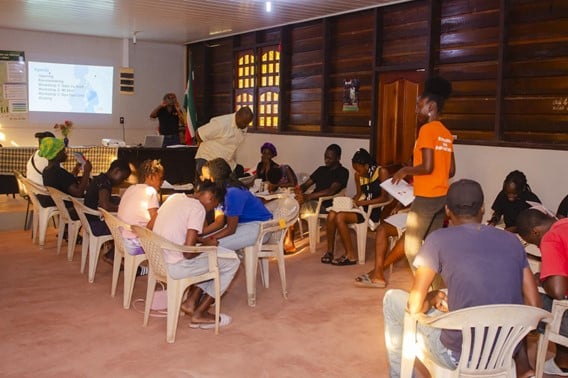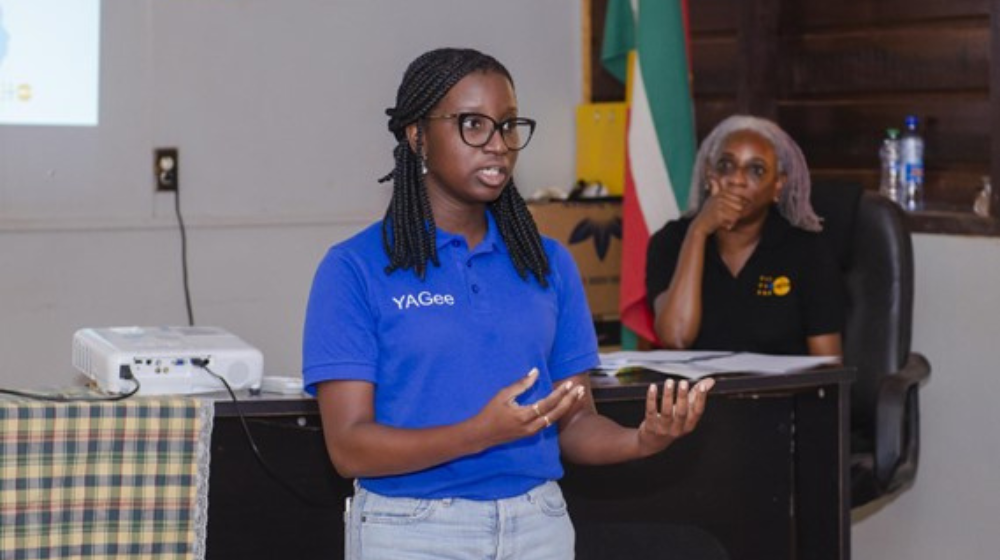The United Nations Population Fund (UNFPA), in collaboration with the Government of the Grand Duchy of Luxembourg, is taking significant steps to combat adolescent pregnancy in Suriname. Through the project “Leaving No One Behind: Building Resilience, and Improving Livelihoods of ITPs in Suriname,” a series of workshops and conversations were held with young people and young mothers aged 14 to 24. This initiative is part of the SDG Joint Programme and involves various UN organizations including UNDP, UNICEF, UN Women, and FAO, alongside local partners such as VIDS, KAMPOS, Medical Mission, and Surinamese Ministries.
Data from the Multi Indicator Cluster Survey (2018) and the MILENA study (2022) reveal higher rates of teenage pregnancy and early motherhood in rural areas and hinterlands of Suriname. This is linked to lower education levels and socioeconomic status, as well as a lack of knowledge about family planning and contraceptives. The socio-economic impact of adolescent pregnancy is substantial, with an estimated loss of SRD 1.5 billion, or 1.6% of GDP.

Motivated by these findings and UNFPA’s mission to end unmet needs for family planning, preventable maternal deaths, and gender-based violence, the Young Mothers Workshops aimed to raise awareness about reducing adolescent pregnancies, particularly among Indigenous and Tribal peoples.

The workshops ran from April to May 2024 in Moengo (Marowijne district), Matta (Para district), and Brownsweg (Brokopondo district), areas with some of the highest adolescent birth rates. The UNFPA Suriname Youth Advisory Group (YAG) facilitated these workshops based on the principle of peer-to-peer education.
Over the three sessions, 25 young participants aged 13 to 20, including both young mothers and other youth, were informed about important issues concerning their future. The first workshop, “Sabi Yu Srefi” (Know Yourself), led by YAG vice-chair Chathera Adrai, focused on personal leadership. Participants discussed their role models, ranging from international football players to local entrepreneurs, and explored how to integrate positive aspects of their role models into their own leadership styles.
The second workshop, “Mi Skin” (My Body), led by YAG chairperson Zdena Pelswijk, centered on sexuality and sexual health. Participants discussed their knowledge of sex, considerations for choosing a partner, and the importance of making informed decisions about their sexuality to achieve their desired future. The third workshop, “Dya Dya Uma” (Strong Woman), facilitated by Astrid Runs and Sandra Bisoina, emphasized personal care and hygiene. Topics included regular hygiene practices, disease prevention, and maintaining a clean environment.

The workshop series achieved its goals of enhancing cooperation with local partners and empowering young people to shape their future through personal leadership. Participants gained knowledge about their sexual and reproductive rights and how to maintain their mental and physical health. Plans are underway to expand the project to reach more young people in the future.


